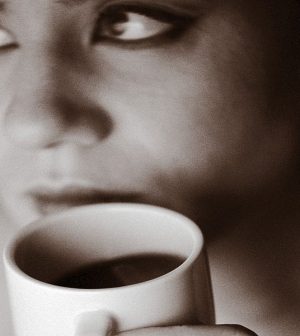- Could Your Grocery Store Meat Be Causing Recurring UTIs?
- Are You Making This Expensive Thermostat Error This Winter?
- Recognizing the Signs of Hypothyroidism
- 10 Strategies to Overcome Insomnia
- Could Artificial Sweeteners Be Aging the Brain Faster?
- Techniques for Soothing Your Nervous System
- Does the Water in Your House Smell Funny? Here’s Why
- Can a Daily Dose of Apple Cider Vinegar Actually Aid Weight Loss?
- 6 Health Beverages That Can Actually Spike Your Blood Sugar
- Treatment Options for Social Anxiety Disorder
Is Caffeine Fueling Your Anxieties?

If you struggle with anxiety, you might want to skip that second cup of coffee, new research suggests.
For some people, caffeine may help with concentration and provide an energy boost, but it can cause problems for those with general anxiety disorder, said Dr. Julie Radico, a clinical psychologist with Penn State Health.
“Caffeine is not the enemy,” she said in a university news release. “But I encourage people to know healthy limits and consume it strategically because it is activating and can mimic or exacerbate the symptoms of anxiety.”
Low doses of caffeine are in the range of 50 to 200 milligrams (mg). Consuming more than 400 mg at once may lead to feeling overstimulated and anxious, and bring on symptoms such as racing heart, nausea or abdominal pain.
Anxiety is a common problem, but many patients and their doctors don’t think about caffeine as a potential contributing factor, said Dr. Matthew Silvis, vice chair of clinical operations in the division of family medicine at Penn State Health.
“We want people to consider whether there may be a connection between their caffeine consumption and anxiety,” he said.
As well as being a potential problem for people with anxiety, caffeine can interact negatively with medications for seizure disorders, liver disease, chronic kidney disease, certain heart conditions or thyroid disease, Silvis noted.
“Medical disorders that a patient may already have can become more difficult to control,” he said.
In terms of amounts of caffeine, an average cup of home-brewed coffee has about 100 mg, compared with 250 mg in a tall Starbucks coffee and as much as 400 mg in energy drinks. A can of Mountain Dew has 55 mg while a can of Coca-Cola has 35 mg.
Many vitamin and sports or nutritional supplements also contain caffeine, but many people don’t think to check the labels of those products, Silvis added.
More information
The U.S. Food and Drug Administration has more on caffeine.
Source: HealthDay
Copyright © 2026 HealthDay. All rights reserved.










